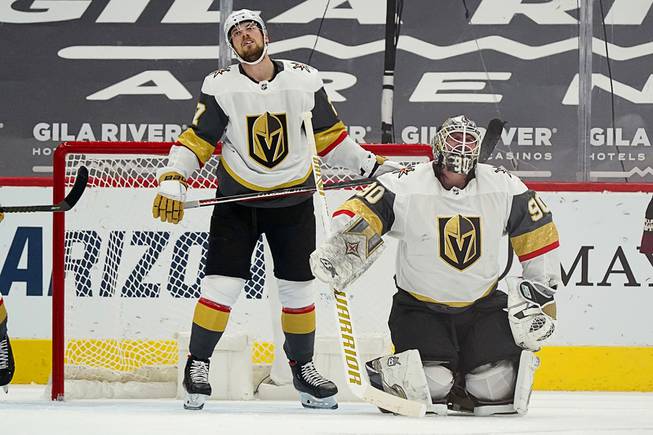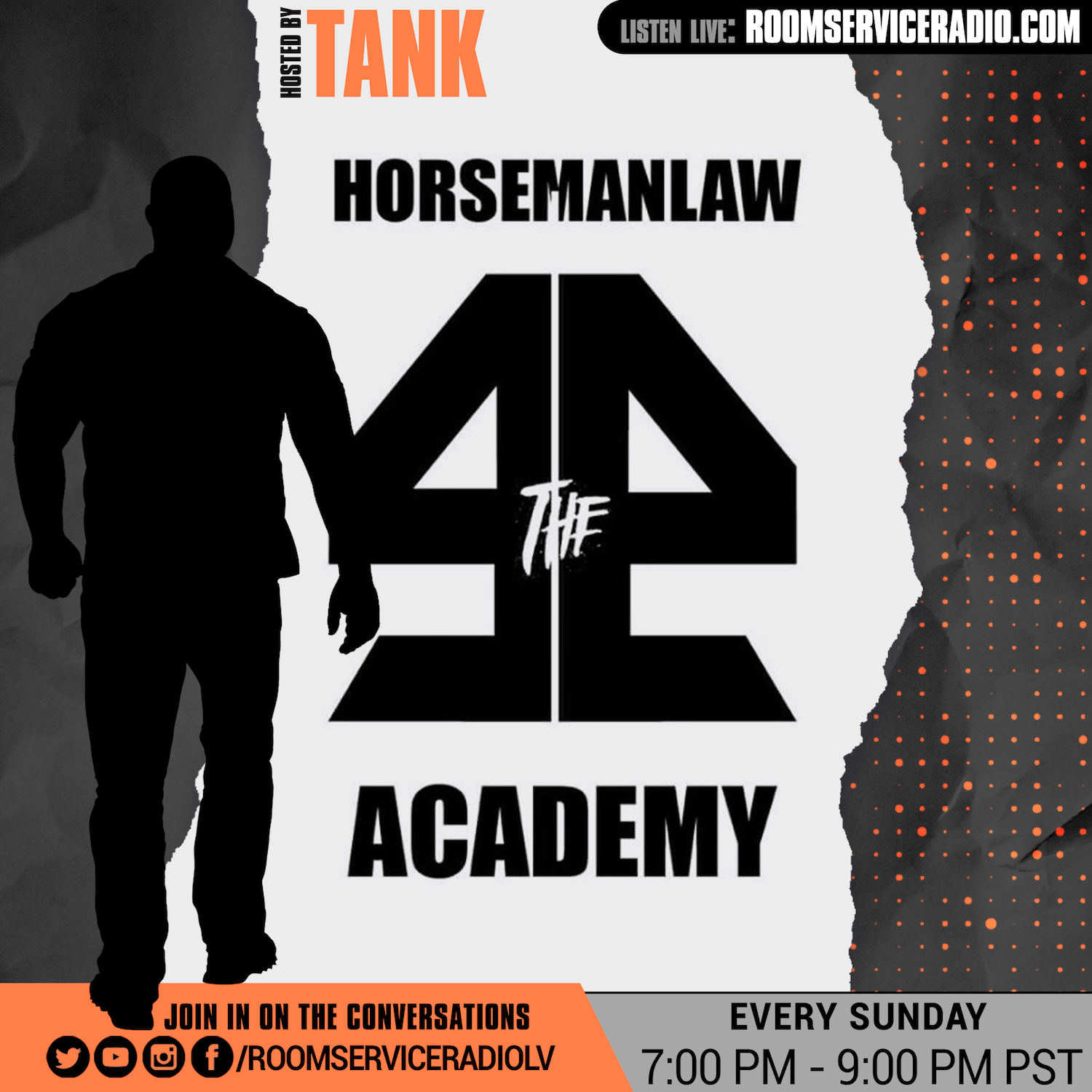
Ross D. Franklin/AP
Vegas Golden Knights goaltender Robin Lehner (90) and defenseman Shea Theodore, left, pause on the ice after a goal was scored by Arizona Coyotes’ Nick Schmaltz during the second period of an NHL hockey game Friday, Jan. 22, 2021, in Glendale, Ariz.
Published Friday, Jan. 22, 2021 | 8:30 p.m.
Updated Friday, Jan. 22, 2021 | 10:25 p.m.
The impact of special teams goes beyond just scoring and preventing goals.
Of course the Golden Knights want every power play to end in a goal and every penalty kill to end without one, but that’s not going to happen. And when they don’t, it’s important to be able to carry play over to the ensuing 5-on-5 action. That’s where Vegas struggled Friday.
The Golden Knights lost for the first time this season, a 5-2 decision to the Arizona Coyotes at Gila River Arena in Glendale, Arizona. The power play scored once, the penalty killed four of six, but the special teams is still what had the Golden Knights irked after the game.
“Penalties really kind of took our momentum out of the game, both taking them … and when they did take them, I don’t think our power play created any momentum for us,” Vegas coach Pete DeBoer said. “For me, that was kind of the story.”
Here’s what he means: In the first two power plays Vegas had just one shot attempt and it was blocked. It’s hard to maintain momentum when most of the power play is spent retrieving the puck after the Coyotes iced it.
Even the power play goal wasn’t as impactful as they would have wanted. Cody Glass redirected a Mark Stone shot with 8:54 game to make it 4-2. Even with the charge of getting on the board, two goals in nine minutes is a tough ask.
“I think it was a bit messy throughout until the end there,” Glass said. “It’s nice to get one to kind of get the confidence up, but we need to be better. Those goals, if they go in, it puts us in a better spot going into the end of the game.”
The penalty kill was similar. Vegas allowed a power-play goal on the first penalty, but locked it down for the four after that. The empty-net goal the Knights allowed will go into the books as a power-play goal allowed, but that doesn’t reflect on the team’s night outside of the stat sheet.
How the Knights took the penalties was impactful as well. They took three in the first period, robbing themselves of a chance to build on a strong 5-on-5 period. Then they took two in the third while trying to mount a comeback, including one with 2:58 left in the game. They were down 4-2 at the time so the comeback was unlikely, but a penalty made it impossible.
“Some self-inflicted things tonight,” DeBoer said.
Even through a tough all-around game for the Golden Knights, defenseman Shea Theodore continued to do what he does — namely, score goals and set others up for them. His goal in the second period was a strong individual effort, stealing the puck in the offensive zone, walking in and shooting high for the Knights’ first goal. He then assisted on Vegas’ power-play goal in the third.
The two points gave him four points in his last two games, and six points in five games this season. His three goals lead NHL defensemen, and his six points are tied for second in the league.
“He creates offense when he’s out there, he’s got a great ability to find those holes, he’s got a sneaky good shot, tough guy to defend when he’s up and in the rush and involved in our offense,” DeBoer said. “I think he’s been very good. He’s one of the guys that’s picked up right where he left off at the bubble.”
He helped control play while on the ice, when the Golden Knights generated 28 shot attempts to 17 against. The bad news is three of those 17 shot attempts ended up in the net, and he was the only player to be on the ice for three Arizona goals at 5-on-5.
Theodore mentioned that in his postgame press conference, and that while he’s pleased with the offensive production, he wants to make sure his defensive game is tighter.
“I’ve been getting a lot of bounces, but the takeaway from tonight is I think the defensive game has to sharpen up,” Theodore said. “I think myself can be a lot better, as can the team, and that’s something we have to focus on going forward.”
In a sport where you only get a handful of goals either way, teams can rarely afford a poor night on special teams. Most of the game is played at 5-on-5, but a disproportionate amount of the scoring happens on the power play.
Vegas’ power play is 2-for-18 this year, a long way off from the franchise-best 22% mark from last year. It will improve, but nights like Friday will happen too. The key is to make sure they don’t happen often.
“Getting our power play, whether we score or not, I want to see it grab momentum for us and feel like it’s dangerous, not suck life out of us when we get one,” DeBoer said. “That’s something that’s got to fix.”












